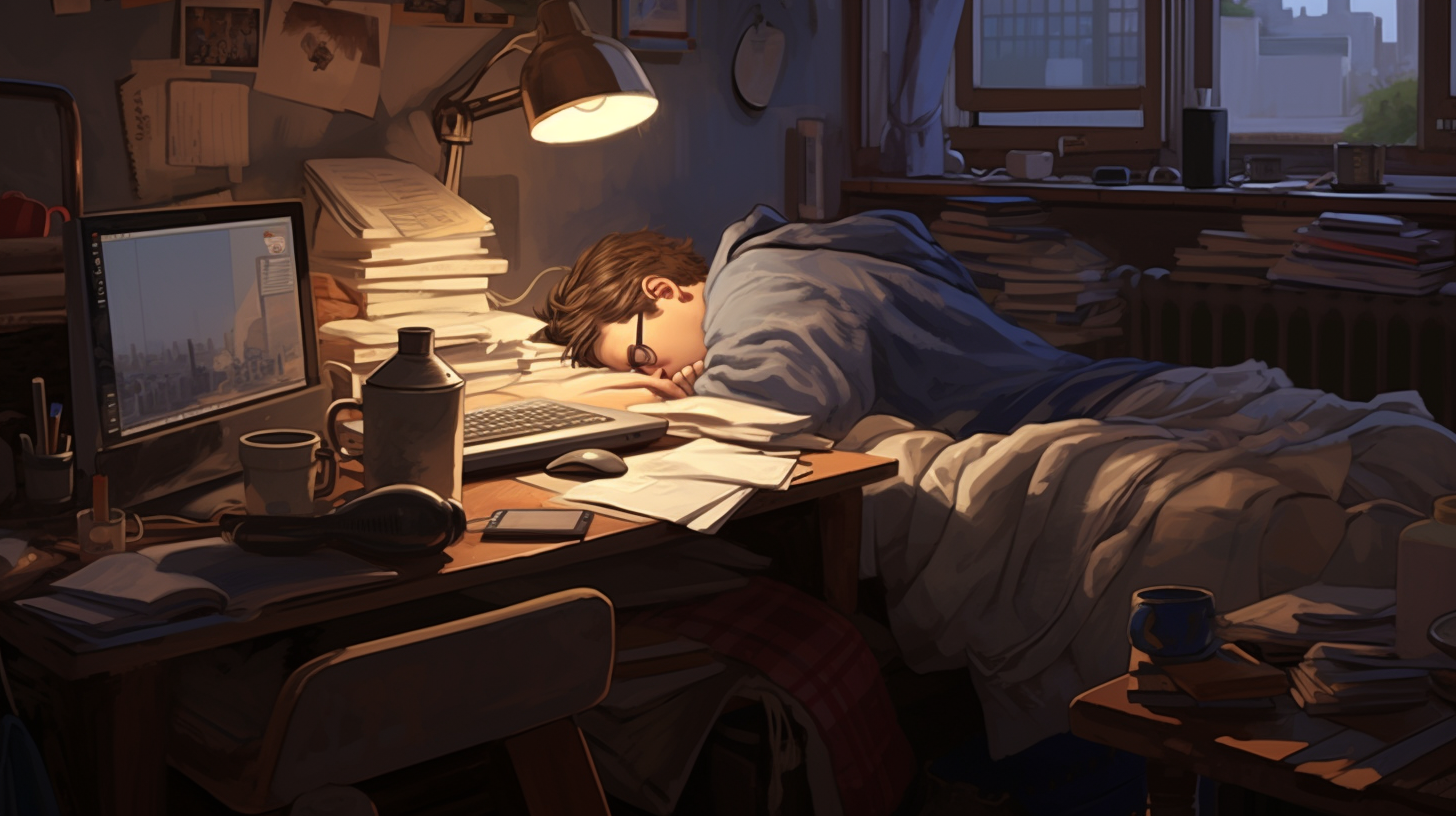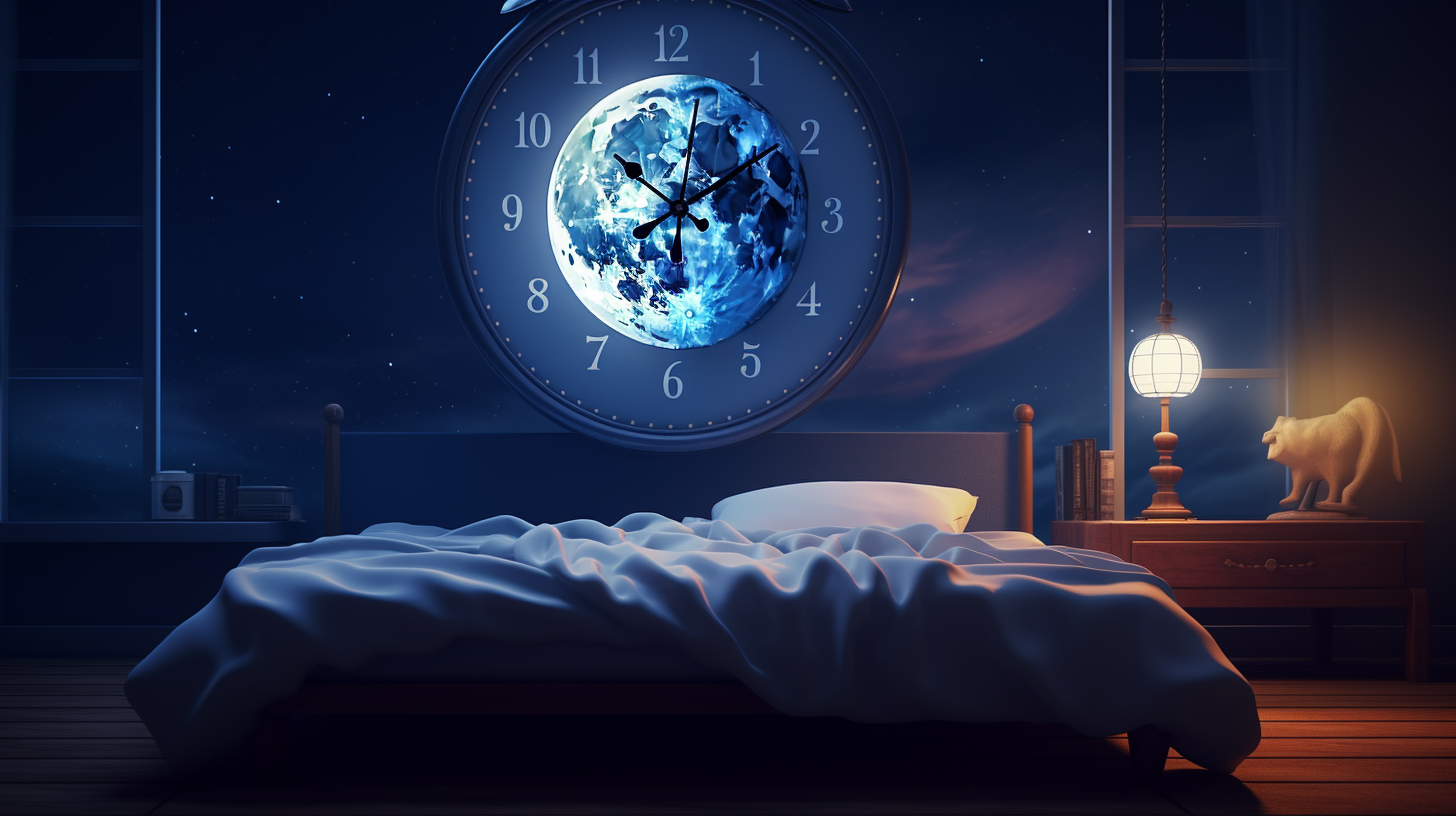Ever wondered what goes on when you’re snoozing? As you drift into dreamland, your body’s hard at work. From repairing cells to clearing out the day’s clutter in your brain, sleep isn’t just a time-out for your body. It’s an essential maintenance period that keeps you at your best.
If you’re skimping on sleep, beware! You’re messing with crucial bodily functions and could be setting yourself up for health problems.
Dive in to discover more about what happens while you’re sleeping soundly.
How Your Brain and Body Functions While You Sleep?
As you drift off into sleep, your body undergoes a remarkable transformation. Your breathing and heart rate slow down, your muscles relax, brain activity changes, and you may even start to dream.
Let’s delve deeper into these complex processes, based on scientific research, to understand how each of these elements – breathing, heart rate, muscle tone, brain activity, and dreaming – play their distinct roles during sleep.
Breathing
You’ll notice that your breathing slows down during non-REM sleep and may become irregular once you hit the REM stage. This change in respiratory rhythm is part of your body’s natural sleep cycle, a complex process regulated by your nervous system.
During deep, non-REM sleep, your body enters a restful state where energy conservation takes precedence. Here, respiration rates drop to their lowest levels as your body uses less oxygen.
However, when REM sleep kicks in, things get a little more exciting. Your brain activity spikes again causing an increase in your breathing rate which can sometimes become erratic. This physiological response is linked to the vivid dreaming typically associated with REM sleep.
Understanding these changes can help you appreciate the intricate dance that transpires inside you every night while you’re sound asleep!
Muscle Tone
Muscle relaxation is another crucial aspect of the sleep process. During REM sleep, most muscles enter a state of atonia to prevent physical response to dreams. As you transition through the non-REM stages, your muscles gradually relax and your body’s total energy expenditure drops. This relaxation of muscles is part of why sleep feels so restorative. It’s a time when your body can conserve energy.
When you enter REM sleep, most muscles become temporarily paralyzed in a condition known as atonia. This fascinating phenomenon serves an important purpose: it keeps your arms and legs from flailing about in response to dream content. However, not all muscles are immobilized during this stage. Respiratory and eye muscles remain active – hence the term ‘rapid eye movement’ for this phase of sleep.
Brain Activity
Brain activity during sleep isn’t as quiet as you might think, especially during the REM phase. As your body rests, your brain continues to work at different intensities throughout each sleep stage.
Non-REM Sleep: Your brain waves slow down significantly in the early stages of non-REM sleep, but there are quick bursts of activity in Stages 2 and 3.
REM Sleep: In this stage, your brain activity accelerates, exhibiting markedly different wave patterns compared to other stages.
Memory Consolidation: REM sleep is thought to play a crucial role in memory consolidation due to heightened brain activity.
Brain Function While Awake: Even with reduced brain activity during non-REM sleep, it’s believed that this period facilitates proper functioning while awake.
Remember: sound sleep equals healthy brain function!
Dreaming
While we’re catching some z’s, our minds get pretty busy with dreams, particularly during the REM stages of sleep. This is when your subconscious comes alive, weaving stories that can be fanciful, immersive or downright bizarre. But don’t think it’s just the REM stage having all the fun. Dreams can occur in any sleep stage, albeit showing different patterns.
During non-REM sleep, your dreams tend to be less vivid and more thought-like. They’re simpler and often tied to daily activities. However, once you drift into REM sleep, that’s when things get interesting. Your brain activity ramps up and your dreams become more intricate and emotional.
Hormone Levels
It’s fascinating how our hormone levels fluctuate during different sleep stages, significantly impacting our health and well-being. As you sleep, your body carefully orchestrates the production of various hormones:
- Melatonin helps to promote your sleep.
- Growth hormone supports bone and muscle development as well as metabolism.
- Cortisol, part of your stress response system, is kept in check.
- Your appetite-controlling hormones, Leptin and Ghrelin, are regulated.
These hormonal changes occur in tune with your internal clock or circadian rhythm. However, note that the quality of sleep can affect daytime hormone production too. Thus, ensuring a good night’s rest is not only refreshing but also crucial for maintaining hormonal balance within your body.
What happens if you don’t get enough sleep?
You’re putting your health at risk if you don’t get enough sleep. It can lead to chronic illnesses, mood changes, and an increased risk of accidents. Sleep is not a luxury but a necessity for your body to function properly. Your heart, kidneys, brain, and even blood health can be negatively impacted by sleep deficiency.
When you don’t catch enough Z’s, you’re more prone to injuries. Drowsiness while driving could cause serious accidents. For older adults, not getting adequate rest increases the chances of falls and bone fractures.
Specifically, sleep deprivation can lead to mood swings or exacerbate anxiety disorders. It further impacts your mental wellbeing by resulting in poor memory and focus—vital cognitive skills that are crucial in day-to-day life.
Physical fatigue is perhaps the most obvious consequence of inadequate sleep. But did you know that lack of sleep also weakens your immune system? A compromised immunity leaves you vulnerable to common colds or more severe infections.
Furthermore, weight gain is another surprising side-effect of not getting enough shut-eye. Sleep regulates hormones like leptin and ghrelin, which control feelings of hunger and fullness. When these go awry due to lack of restful slumber, overeating or unhealthy cravings may occur.
High blood pressure, insulin resistance – leading potentially towards Diabetes – are serious risks associated with chronic lack of sleep. Even worse? Long-term deprivation heightens the likelihood of early death.
Conclusion
So, your body works hard while you’re sleeping. It’s regulating hormones, repairing cells, and consolidating memories.
Skimping on sleep throws off this intricate process, potentially disrupting your health. Don’t underestimate the power of a good night’s rest – it’s essential for keeping you on top form.
So make sure to prioritize quality shut-eye every night – it’s doing more for you than you might realize!
Frequently Asked Questions
To improve sleep quality, maintain a consistent sleep schedule. Limit caffeine and screen time before bed. Create a restful environment: dark, quiet, cool. Regular exercise can help too. If issues persist, consult a professional.
Your diet significantly impacts your sleep patterns and quality. Consuming too much caffeine or alcohol can disrupt sleep, while a balanced diet rich in tryptophan, magnesium, and melatonin aids in promoting better sleep quality.
Yes, certain substances like caffeine and alcohol can disrupt your sleep cycle. Caffeine stimulates the nervous system, making it harder to fall asleep. Alcohol may initially sedate you, but disrupts quality REM sleep later on.
Absolutely! Regular physical activity can improve your sleep quality. Try exercises like yoga or light cardio, but remember not to exercise too close to bedtime as it may disrupt your ability to fall asleep.
When you sleep, your brain consolidates information, impacting cognitive abilities like problem-solving and creativity. Sleep also regulates emotions, reducing anxiety and depression risks. So, it’s not just memory and focus that improve with sleep.



